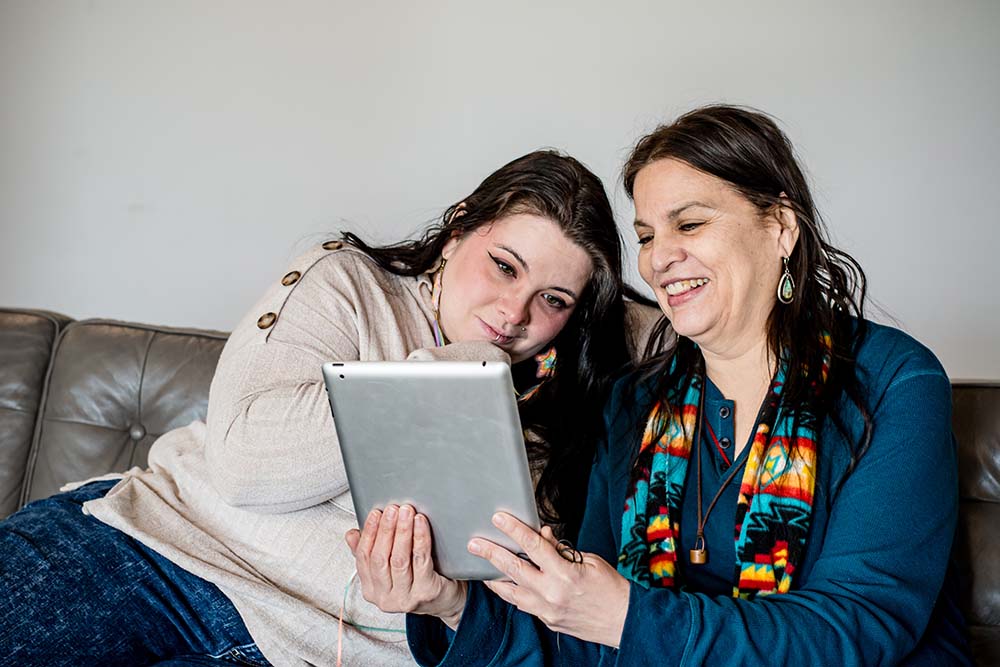
- Details
- By The Pearl High School
Innovative remote high school offering inclusive, student-driven learning that builds autonomy, critical thinking, and joy—where culture is affirmed and honored.
Phoenix, AZ — July 2025 — The Pearl Remote Democratic High School is honored to announce its acceptance as a preferred provider in the Arizona Empowerment Scholarship Account (ESA), making it possible for Native families in Arizona to fully or partially cover tuition for their children through state scholarship funds.
Rooted culturally sustaining, community-centered education, The Pearl serves middle and high school students who need something different from what mainstream schooling offers. With a commitment to personalized, trauma-informed, healing-centered
and student-led learning, The Pearl provides an exceptional educational alternative for families—especially for Native youth who have struggled to find a school where they feel seen, supported, and inspired.
“We are not trying to compete with Tribal schools,” says Dr. Robin Harwick, founder of The Pearl and an Ottawa descendant. “We are here for the families whose teens do not have access to culturally relevant options in their area and want a flexible and personalized learning experiences. We partner with families to create an educational journey that works for them.”
The Pearl is proud to walk alongside our Native students, staff, board members, and behind-the-scenes advisors, who challenge us with wisdom and care to keep reflecting, listening, and working to decolonize our curriculum. Our remote model makes high-quality, inclusive learning accessible—no matter where a student lives—and our teachers have expertise in serving students with ADHD, Autism, and learning disabilities.
Courses at The Pearl are capped at just 10 students per class, and co-designed by youth and educators. Students help shape what and how they learn—whether they're diving into “Voices of Resistance” in their ELA class, exploring Indigenous history, or collaborating on environmental justice projects.
“Our young people don’t just attend classes—they become leaders in them,” says Harwick. “They learn how to advocate for themselves and their communities, and they get to practice it as part of their coursework.”
With over 60% of Pearl students identifying as BIPOC, neurodivergent, or LGBTQ+ the school centers those who have been historically underserved and strategically marginalized by mainstream systems.
The Arizona ESA program now makes it easier than ever for Native families to choose The Pearl. Students in other states are also welcome to enroll—tuition is privately funded unless they reside in New Hampshire, where state support is available.
Learn more or schedule a free consultation at thepearlhighschool.org
About The Pearl
The Pearl Remote Democratic High School is an international high school providing students an online democratic education that balances personal and social interests to become informed, competent, and involved citizens in a safe anti-racist environment.
CONTACT
Robin Harwick, PhD.
The Pearl High School
Phone: 206-485-2990
E-mail: [email protected]
Facebook: @ThePearlHighSchool
Instagram: @the_pearl_high_school
Website: https://thepearlhighschool.org/
Help us defend tribal sovereignty.
At Native News Online, our mission is rooted in telling the stories that strengthen sovereignty and uplift Indigenous voices — not just at year’s end, but every single day.
Because of your generosity last year, we were able to keep our reporters on the ground in tribal communities, at national gatherings and in the halls of Congress — covering the issues that matter most to Indian Country: sovereignty, culture, education, health and economic opportunity.
That support sustained us through a tough year in 2025. Now, as we look to the year ahead, we need your help right now to ensure warrior journalism remains strong — reporting that defends tribal sovereignty, amplifies Native truth, and holds power accountable.
 The stakes couldn't be higher. Your support keeps Native voices heard, Native stories told and Native sovereignty defended.
The stakes couldn't be higher. Your support keeps Native voices heard, Native stories told and Native sovereignty defended.
Stand with Warrior Journalism today.
Levi Rickert (Potawatomi), Editor & Publisher
